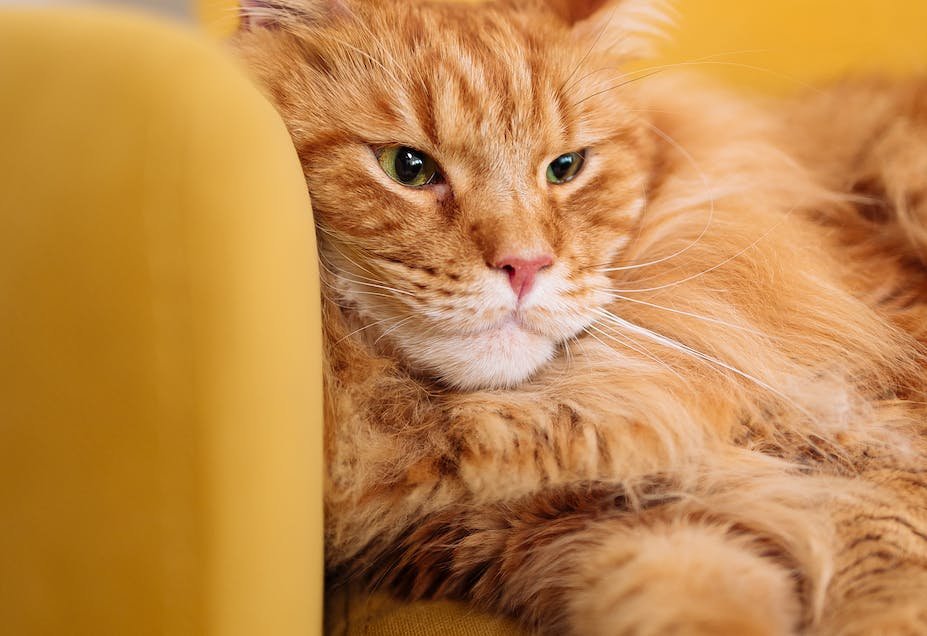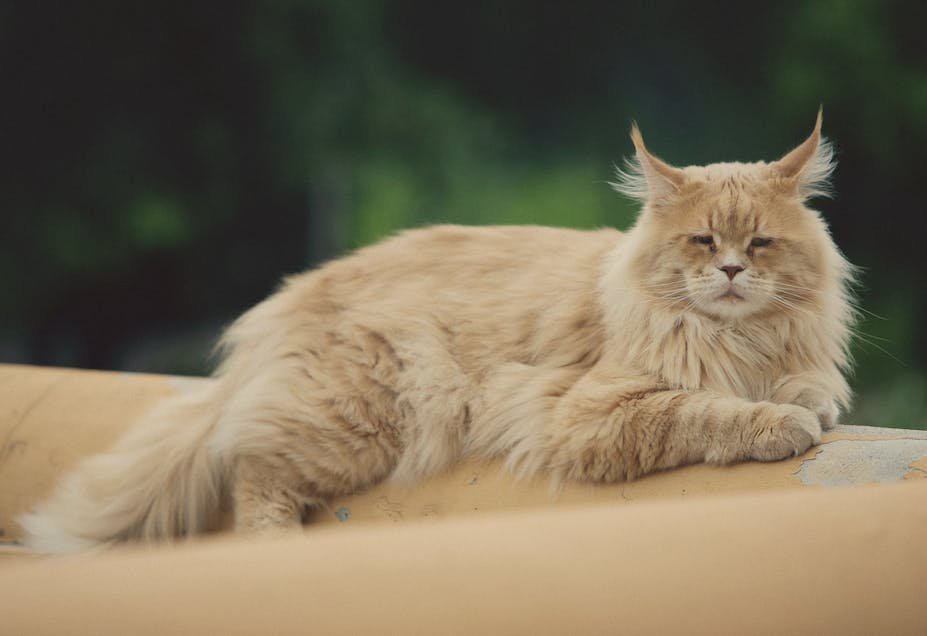Why Don’t Maine Coon Cats Meow?
Why Don’t Maine Coon Cats Meow? (Find Out)
The Maine Coon Cat is a charming cat known for its impressive size, tufted ears, and bushy tail. Despite its size and seeming fierceness, it is one of the most affectionate and sociable cats out there. However, there's one peculiar trait about this breed that often leaves people intrigued - their unusual quietness. Unlike other cat breeds, Maine Coons are typically not known for their strong vocalization or "meow-ing."
Understanding the Maine Coon Breed
Maine Coons are one of the oldest natural breeds in North America. They are well-loved for their friendly nature, intelligence, and playful personality. Despite their massive size, they are known for being gentle and easy-going, often tagged as "gentle giants".

The Mystery Behind Their Silent Meows
Interestingly, Maine Coons don't often "meow" like other cats do. Their vocalization can range from chirps, and trills, to soft coos, often delivered in a friendly and serene manner, suggesting that Maine Coons are generally very quiet and calm cats. Genetic factors are primarily to credit for this unique trait.
Unlike the incessant meowing exhibited by some cats, the Maine Coon’s communication style is much more relaxed. This quietness does not equate to communication indifference. On the contrary, these cats can be quite expressive. With their endearing chatter, they show that there are plenty of ways to communicate affection and needs beyond the typical cat "meow."
Reasons Why Maine Coon Cats Meow Less
Despite the Maine Coon's reputation as a gentle giant amongst feline breeds, some people may wonder why these cats tend to meow less frequently. Let's explore the reasons behind this fascinating trait, starting with their evolutionary traits and hunting instincts and then diving into their individual personality and temperament.
Evolutionary Traits and Hunting Instincts
The first contributing factor to the Maine Coon's quiet demeanor lies in their hunting heritage. Originating from the forests of North America, these cats had to be stealthy to become successful hunters and survive. Chirps, trills, and soft coos were far less detectable than loud, characteristic meows. As a result, these softer, more subtle vocalizations became a natural part of their communication, enhancing their hunting prowess and contributing to their survival.
Individual Personality and Temperament
The other reason for the Maine Coon’s less frequent meowing boils down to their individual personality and temperament. Maine Coons are known for their laid-back and friendly personalities; they are not pushy for attention like some other breeds. Their amiable and affectionate temperament translates into their communication style. Instead of raising their voices to make their needs known, Maine Coons typically use a more subtle form of communication, chattering or trilling, which is no less effective or endearing.
In line with their reputation as the gentle giants of the feline world, Maine Coon cats exhibit a unique range of communication techniques that extend beyond regular meowing. This comprehensive communication approach includes non-verbal cues and body language as well as alternative methods of vocalization, contributing to their allure and distinctiveness.
Non-verbal cues and Body Language
Maine Coons are master communicators, with a vast array of non-verbal cues that complement their charming croons. Observant pet owners might see how these furry friends use their expressive eyes to communicate. Broadly opened eyes, for instance, signify curiosity, while half-closed, sleepy eyes express trust and contentment.
Likewise, a flicking tail or flattened ears can also indicate different moods and intentions. Understanding and responding to these subtle signals can significantly enhance the bond between you and your Maine Coon.

Other Vocalizations and Alternative Means of Communication
In addition to their body language, Maine Coons also employ a delightful range of other vocalizations. Trills, chirps, and coos are among their signature expressions, and each sound communicates a specific need or emotion. For instance, Maine Coons often trill when they are happy or want attention, while chirping is usually reserved for their hunting antics.
These distinctive sounds, coupled with their expressive body language, make up the communication repertoire of Maine Coons. This broad spectrum of communication methods makes them one of the most engaging and interactive cat breeds to have around.
In essence, the minimal use of the typical "meow" amongst Maine Coons is not an inadequacy but rather a testimony to their comprehensive communication style.
Myths and Misconceptions about Maine Coon Cats
Despite the comprehensive communication approach of Maine Coon cats, there is a prevailing myth that they do not meow; it couldn't be further from the truth. This misconception probably stems from their distinctive and varied range of vocalizations beyond the typical "meow" employed by other domestic cats. Let's dive in for a clearing up of these unfounded beliefs.
Common Beliefs Debunked
Maine Coon Cats Don't Meow? This myth is unreliable. Maine Coons DO meow, though their vocalization might differ from what you'd expect. Their communication repertoire spans trills, chirps, coos, yowls, and, yes, the occasional meow. However, they favor their exotic sounds to cater to specific scenarios, which makes their meowing seem lesser compared to other breeds but doesn't imply its absence.
Separating Fact from Fiction
In debunking Maine Coon myths, the fundamental understanding is recognizing their comprehensive communication style. They possess a rich and varied linguistic capacity beyond the typical 'meow.'
Furthermore, their 'meow' often serves diverse communication needs rather than a catch-all sound. When they do meow, it is melodic and expressive, adding another layer to their complex and charming communication style.
Understanding these misconceptions about Maine Coon cats helps one to appreciate their unique language capabilities better. Their communication style is a testament to their distinctive personality, which further endears them to their owners. It is an integral part of their allure, making them one of the most interactive and engaging cat breeds to have around.
Conclusion
Maine Coon cats are often misunderstood when it comes to their vocalizations. While there is a prevalent myth that they don't meow, this couldn't be further from the truth. Maine Coon cats do indeed meow, although their vocal repertoire extends beyond the typical "meow" that other domestic cats use. Their communication style is diverse and unique, making them even more fascinating and endearing to their owners.







